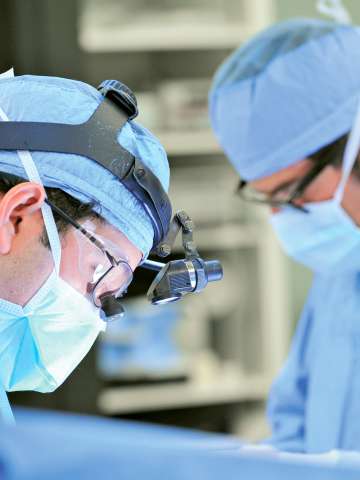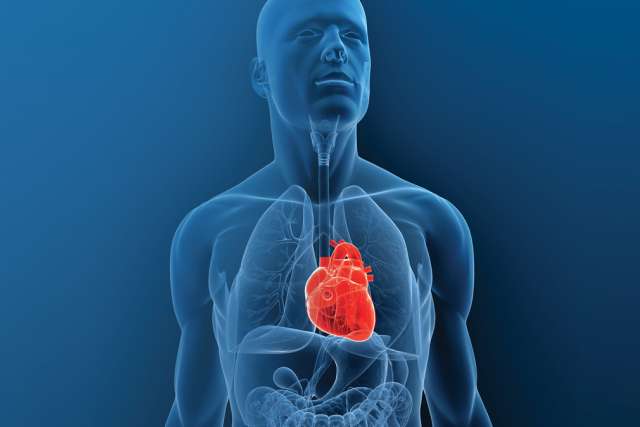Heart Transplant
The specialists in our Heart Transplant Program have offered the most advanced treatments for more than 35 years.

Why choose UCLA Health for heart transplant?
Our Heart Transplant Program is one of the largest and most successful programs of its kind in the country. Since 1984, we have performed more than 2,000 adult and 300 pediatric heart transplants. We are known worldwide as pioneers in heart transplantation.
When patients choose us for their care, they benefit from:
Exceptional outcomes: Only 5% of our adult patients experience donor heart rejection, versus the national average of 25%. Ours is the lowest rejection rate in the country. We also routinely rank higher than expected in patient survival rates. Because we are a major referral center, we treat patients with some of the most complex illnesses. This means that our exceptional outcomes are anything but routine.
Advanced techniques: We use advanced techniques throughout the full spectrum of patients’ care. For example, our specialists developed a blood test that detects potential transplant rejection early. Typically, patients would undergo a heart biopsy one year after surgery. This test virtually eliminates that uncomfortable and inconvenient procedure .
Multi-organ expertise: We have the expertise to transplant multiple organs in one operation. For example, we work closely with specialists in our Lung Transplant Program to care for patients who need both a heart and lung transplant.
Expanded access to donor organs: We use a new technique called the beating heart transplant to preserve organs until we are ready to perform the transplant. We participated in the research and clinical trial to create and perfect the beating heart technique. Thanks to this new technology, we have expanded donor pools and made transplants more accessible.
Pediatric-to-adult care: We manage care from infancy through adulthood. We are one of the few programs in the country with the expertise to perform both pediatric and adult transplants. When the time comes, we offer specialized services to help children transition to adult care.
Our areas of care
Our specialists have the expertise to offer all types of heart transplants, including:
Adult heart transplants: We are known as leaders in heart transplants. Our specialists consistently research new techniques in heart transplantation, so we can offer patients the most promising outcomes.
Heart-lung transplant: If you also need a lung transplant, our specialists have the expertise to perform both surgeries at the same time. Through close collaboration with our Lung Transplant Program, we offer combined procedures, so you only need one operation.
Pediatric heart transplants: We use advanced techniques and multidisciplinary care to offer heart transplants to children. Children in our Pediatric Heart Transplant Program benefit from exceptional outcomes, including surgical mortality rates that are far lower than the national average.
Conditions we treat
Candidates for heart transplantation include those whose heart no longer works correctly on its own. You may be a candidate for a heart transplant if you have:
Arrhythmia: When your heart beats too fast, too slow or at an irregular rhythm.
Cardiomyopathy: A disease where the heart muscle thickens and has difficulty pumping blood throughout the body.
Congenital heart defects: A range of structural heart problems that are present at birth.
Coronary artery disease (CAD): Plaque buildup in the arteries that leads to artery narrowing and obstructed blood flow.
Heart failure: When the heart stops pumping blood as efficiently as it should.
Ischemic heart disease: A disease that causes reduced blood flow to the heart.
Valvular heart disease: When any of the heart’s valves become diseased or damaged.
Treatments we offer
We use several heart transplant techniques, including:
Beating heart transplant: Also called “heart in a box,” this technique keeps organs alive until we are ready for transplant. It improves access to donor organs by keeping donor hearts healthier for longer. We recently led a national, multi-center trial to continue improving the technology of beating heart transplants.
ECMO: We use extracorporeal membrane oxygenation (ECMO), a machine that takes over the work of the lungs and heart, when critically ill patients don’t have access to a donor heart yet.
TandemHeart: We were one of the first centers to use TandemHeart, a temporary device that supplies oxygenated blood to the body. This new treatment keeps patients alive until a transplant is available.
Total artificial heart: We were among the first medical centers to use the original SynCardia 70cc total artificial heart. We may use an artificial heart as a permanent transplant or as a temporary treatment to keep patients alive until they have access to a donor heart. In 2015, we performed the first surgery in the world using the SynCardia 50cc total artificial heart, leading the way to expand future transplant options for children.
Meet our team
Our team includes experts who have achieved national recognition for their exceptional care. We are leaders in caring for patients, conducting research and training the next generation of clinical leaders.
Contact us
Call to request an appointment with a specialist in the Heart Transplant Program at UCLA Health.
Find your care
UCLA Health heart transplant patient outcomes are among the best in that nation. Call to learn more about the Heart Transplant Program.
For information about heart-lung transplants, please call .
